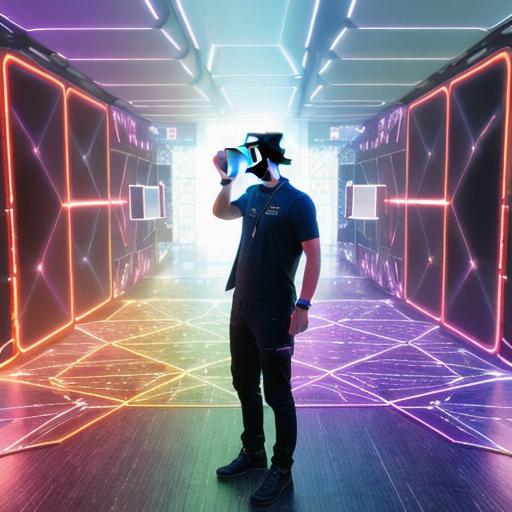In the realm of virtual reality (VR), two concepts have gained significant attention in recent times: the Metaverse and the Multiverse. Both represent innovative approaches to creating immersive digital environments, but which one is superior? Let’s delve into a comparative analysis of these two groundbreaking concepts.
What is the Metaverse?
The Metaverse refers to an interconnected network of 3D virtual worlds, where users can interact with each other and their surroundings in real time. It is essentially a collective virtual shared space, created by the convergence of virtually enhanced physical reality and physically persistent virtual reality. Facebook’s Horizon, Microsoft’s AltspaceVR, and Epic Games’ Fortnite are some examples of Metaverse platforms. In the Metaverse, users can create their own avatars, interact with others, and engage in a wide range of activities, from socializing to working and playing games.
**What is the Multiverse?
**
The Multiverse, on the other hand, is a theoretical framework that suggests the existence of multiple universes beyond our own. While not directly related to VR technology per se, it is an important concept when discussing virtual environments due to its potential implications on creating vast, complex virtual worlds. In theory, a Multiverse Metaverse could consist of countless interconnected virtual universes, each with its unique set of rules and properties.
**Virtual Reality Technology: Comparing Metaverse and Multiverse**
1. **Immersive Experience:** Both the Metaverse and Multiverse offer immersive experiences but in different ways. The Metaverse is all about creating a collective, shared virtual space that users can explore together. The Multiverse, however, implies an infinite number of universes to explore, each with its unique rules and properties.

2. **Complexity:** The Metaverse represents a more complex and interconnected virtual environment than the Multiverse in terms of VR technology. Building and maintaining a vast network of interconnected virtual worlds requires significant computational power and infrastructure.
3. **Creativity:** Both concepts offer immense potential for creativity. In the Metaverse, users can create their avatars, customize their environments, and interact with others. In the Multiverse, the possibilities are virtually limitless due to the presence of countless universes to explore.
4. **Innovation:** The Metaverse is a more mature concept that already has several practical applications, such as virtual meetings, social networking, and gaming. The Multiverse, being a theoretical framework, holds immense potential for innovation in creating complex and diverse virtual worlds.
**Summary: Superiority Depends on the Perspective**
In conclusion, neither the Metaverse nor the Multiverse can be definitively declared superior when it comes to VR technology as they serve different purposes. The Metaverse offers a more practical, accessible, and interconnected virtual space for users to explore together, while the Multiverse represents an infinite canvas for creativity and innovation in creating complex, diverse virtual worlds.

Ultimately, the choice between these two concepts depends on your perspective, interests, and preferences. If you’re looking for a more practical, accessible, and social VR experience, then the Metaverse is the way to go. But if you’re interested in exploring the boundless potential of virtual reality through an infinite number of unique universes, then the Multiverse might be more appealing. Regardless of your choice, both concepts offer exciting opportunities for innovation and exploration in the ever-evolving world of virtual reality.
